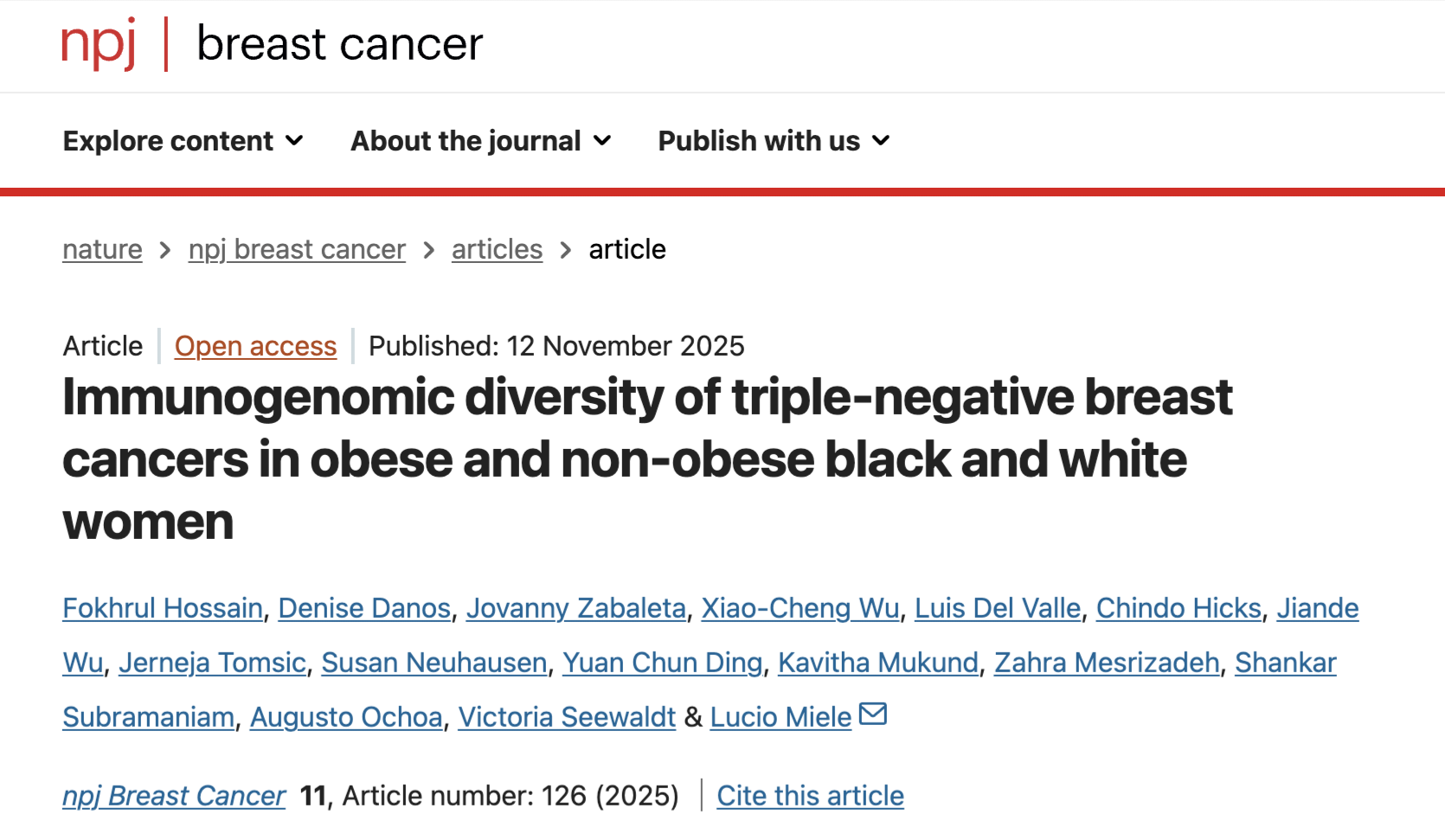.png)
Researching Prostate Cancer
Louisiana Cancer Research Center faculty are investigating prostate cancer in numerous ways from immunology to population science to health disparities and more. Prostate cancer is a major health concern in our state - it is the second leading cause of cancer death among men in Louisiana. There are significant disparities in prostate cancer in Louisiana and African American men are more likely to be diagnosed with prostate cancer at an earlier age and their prostate cancers tend to be more aggressive.
Two important questions that an LSU researcher is trying to answer are: Which of the more than 3,700 cases diagnosed each year will be fatal? And can we develop new treatment modalities for lethal prostate cancer?
“We currently have to treat everyone diagnosed with prostate cancer even though most men may not have lethal disease and will live several decades after diagnosis. There's overtreatment and an underuse out there, and no curative treatments for lethal prostate cancer at this point,” said Hari Koul, PhD, Professor and Head GU Oncology Research and Associate Director of the Cancer Center at LSU Health New Orleans School of Medicine, who hopes to find a way to distinguish the indolent disease from lethal cancer.
Dr. Koul is homing in on a protein called Prostate Derived ETS Transcription Factor (PDEF). Dr. Koul discovered that higher levels of PDEF could prevent prostate cancer cells from metastasizing to other parts of the body. “We believe that loss of that protein is critical in driving indolent disease to lethal disease. The goal of our research is to figure out how to regulate PDEF so that we can stop prostate cancer from becoming lethal,” he said. Another goal of Dr. Koul’s research is, “to figure out whether loss of PDEF protein can be used as a prognostic biomarker for early detection of lethal prostate cancer, which may also help overcome prostate cancer health disparities in African-American men, who are twice as likely to die from prostate cancer as compared to Caucasian men.” Dr. Koul’s research is supported in part by two federal grants: a grant from the Biomedical Laboratory Research and Development Branch of the Veterans Administration and another grant for the National Cancer Institute /National Institutes of Health.
Data shows that the incidence of prostate cancer rises rapidly in men in their fifties, with the highest rates in those aged 70 to 80. Qiuyang Zhang, PhD, Tulane Assistant Professor, Structural & Cellular Biology at Tulane University School of Medicine, is researching the role of low-grade inflammation called “inflammaging” and how chronic inflammation contributes to the onset and progression of prostate cancer. Inflammaging is not infection-related, yet it develops with advanced age, in the absence of overt infection, and may contribute to clinical manifestations of other age-related pathologies. It is caused by activated immune cells secreting many inflammatory cytokines, which causes inflammation.
“Usually, when we are young, the immune response of certain cells is in balance, but during the aging process, the pro-inflammatory immune response increases more than the anti-inflammatory immune response. So, there is a disruption of the balance. My goal is to study how this disruption promotes prostate cancer development,” Dr. Zhang explained.
American men have higher incidence rates of prostate cancer and significantly worse outcomes than in other parts of the world. Prevention and early detection save lives and a project led by Xavier University of Louisiana aims to measure the results when patients work with clinicians to make informed decisions about prostate specific antigen (PSA) screenings for early detection of prostate cancer. At Xavier University of Louisiana Dr. Margarita Echeverri is collaborating with Tulane researchers on a study of 200 African American men in the New Orleans area to determine whether “shared decision making” training can facilitate patients' conversations with their respective primary care providers about prostate cancer risks and screening preferences with the aim to overcome historically low prostate screening rates for Black men.
Ochsner Health’s clinical research focuses in several areas-somatic genomics, focal therapy of localized disease and new therapies for advanced prostate cancer. Dr. Stephen Bardot, Professor and head of the Center for Urologic Oncology at the Gayle and Tom Benson Cancer Center explained: “We are in our ninth year of working with somatic genomics to identify which tumors can be safely managed with active surveillance as well as better predicting behavior for more aggressive tumors and how they will respond to treatment. “ We have also been exploring HIFU (High Intensity Focused Ultrasound) to focally ablate tumors while minimizing quality of life issues. Using tightly focused sound waves we can destroy the cancer cells while minimizing impacts on continence and potency. With our new partnership with The University of Texas MD Anderson Cancer Center to create Ochsner MD Anderson Cancer Center in southeastern Louisiana, we are able to offer even more select early phase innovative therapies for advanced prostate cancer. ”
Screening information
In 2018, the United States Preventive Services Task Force (USPSTF) updated its recommendation statement for prostate cancer. The updated recommendation, which applies to the general population as well as those at increased risk due to race/ethnicity or family history, is as follows:
For individuals ages 55 to 69 years - the decision to undergo periodic PSA-based screening for prostate cancer should be an individual one. Before making the decision, a person should discuss the potential benefits and harms of screening with their clinician and consider these in the context of their own values and preferences.
PSA-based screening for prostate cancer is not recommended for individuals 70 years and older.
Currently, Medicare provides coverage for an annual PSA test for all Medicare-eligible individuals ages 50 and older. Many private insurers cover PSA screening as well.




